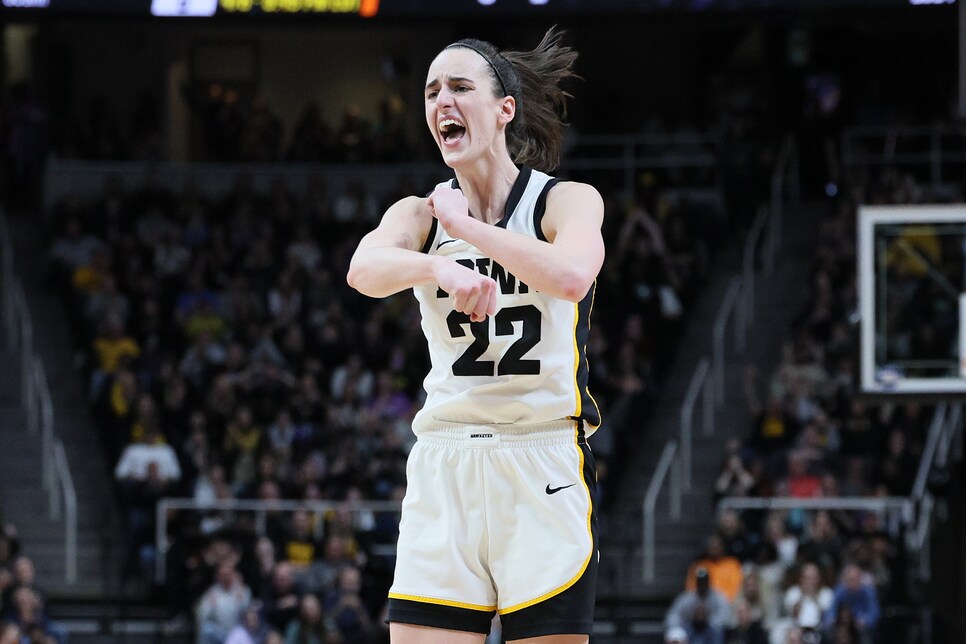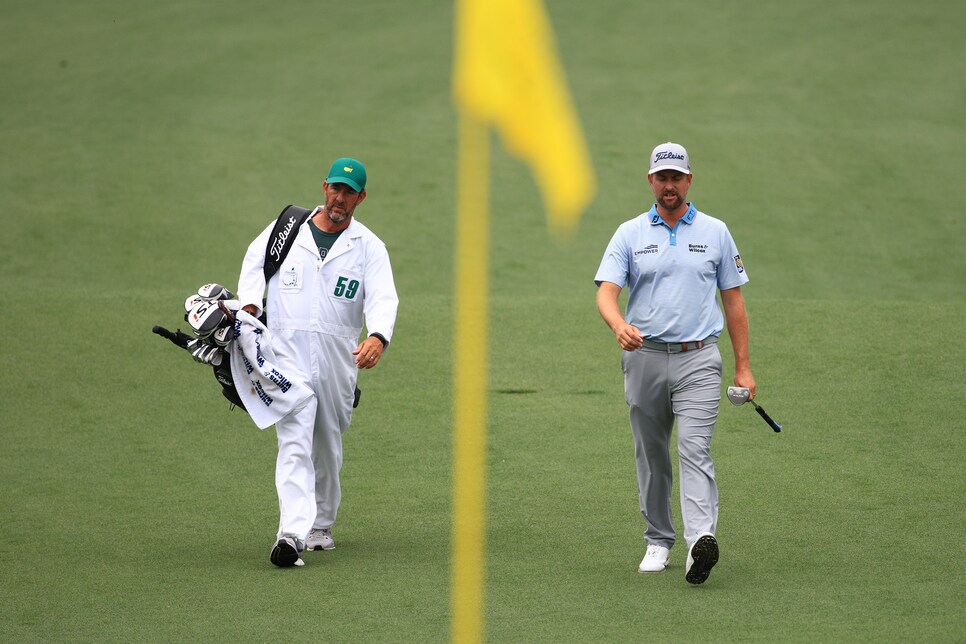This article first appeared in Low Net, a Golf Digest+ exclusive newsletter written for the average golfer, by an average golfer. Have a topic you want me to explore? Send me an email at Samuel.Weinman@wbd.com.
Most club golf tournaments are played without leaderboards, yet a discerning eye can still determine who’s doing what. Slumped shoulders and slammed clubs aren’t mere signals someone just hit a bad shot. They can be decent clues they’re about to hit another one.
A few years ago, Golf Digest’s Keely Levins explored the relevance of body language with Amy Cuddy, a social psychologist and author who wrote a best-selling book about “power poses.” Cuddy’s main premise, supported by research, was that positive body language—standing tall, long strides, arms swinging—encourages positive performance, while negative body language promotes the opposite.
“Our body goes into a fight-or-flight mode,” Cuddy told Levins about reverting to a frustrated stance in competition. “You're feeling threatened, and when you feel threatened, your nervous system is no longer about performance. It's now about getting you out of that situation. That completely undermines your ability to play well.”
This concept expands well beyond golf. ESPN writer Wright Thompson’s amazing profile of the Iowa basketball star Caitlin Clark described how Clark’s coaches spent time showing the player video clips of her frustrated reactions because of the way they sent an undercurrent of panic through the whole team.

Andy Lyons
“Mostly she seemed unaware of how her body language and mood impacted the people around her,” Thompson wrote of Clark. “She'd throw her arms in the air in disgust, or clap loudly, and waves of nervousness would pass through the team.”
As Clark’s career progressed, the writer explained, the coaches made headway in helping the player understand the role it played not just with her, but the entire team. When Clark was able to downgrade tantrums to mere signs of simmering disappointment, it was marked as a win.
It’s worth noting that Clark’s Hawkeyes have advanced to the national semifinals Friday against UConn, a team that famously didn’t recruit her. It might not be a coincidence that the Huskies’ legendary coach Geno Auriemma has always made body langage a focal point. In a viral clip from a press conference a few years ago, the coach explained how it even determines playing time. “If your body language is bad, you will never get in the game,” he says. “Ever.”
My favorite body language story is tied to ice hockey, a sport I’ve played and coached for years. In coaching seminars, they cite the example of a scout who drove four hours in the dead of winter to watch a goalie. When the scout showed up at the rink, the goalie’s coach greeted him with an apology. The backup goalie was starting instead.
“No problem,” the scout said. “I can learn almost as much watching how he is on the bench.”
‘Head down, chest up’

Mike Ehrmann
For golfers, the message of all this is to try to reflect resilience and optimism if we want to play our best. One problem: golf is really f-cking frustrating. To expect to mask our true feelings after hooking a tee shot into the parking lot is as reasonable as expecting to hit our next tee shot in the hole.
A more realistic solution comes from veteran PGA Tour caddie Paul Tesori, who has worked for Vijay Singh and Webb Simpson, and now caddies for Tom Kim. Recognizing that prolonged pouting is detrimental but even pro golfers need a chance to process their emotions, Tesori’s go-to four-word phrase in the face of disappointment is “head down, chest up.” It means you’re allowed a moment to collect yourself, as long as you’re not projecting defeat in the process.
“If you try to be like, ‘Be positive,’ you won’t get the best out of them. It's almost like parenting,” Tesori said. “Kids can sit in it for a little while and you gotta let players sit in it for a little while as well. Then at some point you'll be like, ‘Hey, come on, come back to me. Let's go.’”
Have a question or idea for a future topic? Send me an email and I’ll do my best to dive in.
.jpeg.rend.hgtvcom.966.644.suffix/1712342613478.jpeg)


